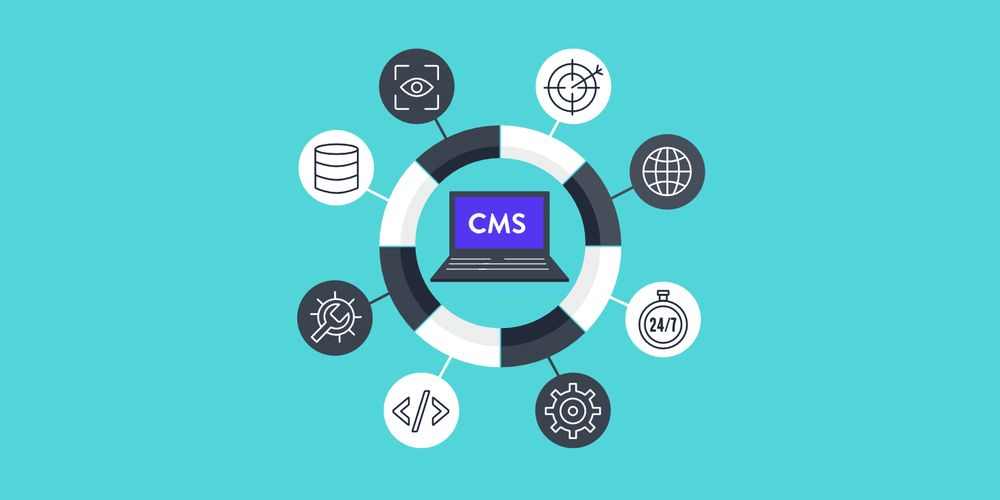
Learn about the best CMS for startups to power website experiences that delight your customers and prospects. Here’s the list of the top five.
The best CMS for startups allows you to create an engaging online experience while managing it with incredible ease. Without coding experience, you can change minor elements on the site to save time and money on paying a developer for every time you need to change a product description or add a blog post.
Before you go out and choose a CMS based on a free website template it offers, realize that these templates are not going to grow with your business. The clutter in the coding and lack of careful optimization will hold back your SEO efforts, slow your website and make it challenging for you to compete with the largest competitors out there.
Therefore, it’s best to start with a custom template from a skilled website developer that can create a custom brand experience based on your branding and value proposition for your customers.
Choosing the best CMS will empower you to manage your website with ease long-term and create a dynamic platform for optimizing your website experience. Here are the best options for startup companies.
As you search for the best CMS for your startup business, here’s a look at the top five options available on the market.

The best CMS overall for most businesses is WordPress. The open-source CMS is powerful and includes a library of more than 54,000 plugins to power integrations and added website functionality.
But like any CMS it has its disadvantages that businesses need to be aware of. The biggest one is that failing to update the website or its plugins could open you up to vulnerabilities. Having a long-term technical resource to manage those updates for you will help protect you from hackers or individuals with malicious intent.
Best for: Best overall CMS available
Pros
Cons
Price: Free
Drupal is another popular CMS option, though it powers far fewer websites than WordPress does. It is another open-source CMS option. The CMS offers solutions for a broad range of industries and provides an interface that most users can use to make minor updates.
For startups that have advanced marketing automation needs, Drupal offers advanced tools. But because the platform is robust, it also has a steep learning curve for the average user. And the CMS is heavily tailored toward developers instead of the average user.
Best for: Complex, content-heavy websites
Pros
Cons
Price: Free
Joomla is a great CMS for startups, but it likely won’t grow to meet your needs if you have big plans for expanding your business and its offerings. One area where Joomla really shines is in its content publishing and management tools. You’ll find it’s diverse in its ability to manage different types of content and has some of the most robust toolsets to provide flexible options.
Best for: Small business websites with limited data needs.
Pros
Cons
Price: Joomla starts at $99 per month.
Magento offers many advanced eCommerce tools with marketing capabilities you won’t find elsewhere. The company is well-known for its marketing tools. However, the price tag is a big deterrent for many small businesses. You’ll need to have an established eCommerce business to make the switch to Magento due to its high price tag. Determining whether the platform is worth its high price is challenging when many excellent eCommerce platforms are far more affordable.
Best for: eCommerce platform with marketing capabilities.
Pros
Cons
Price: Starts at $15,000 a year
If you use Adobe products for various aspects of your business, you’ll find Adobe Experience Manager to be a great tool for managing your website as well. The CMS is robust and Adobe has ample resources to help you succeed.
However, the cost structure is challenging for most small businesses. And you’ll find there is a much larger learning curve than with other simple CMS options. The CMS will grow with you as your business needs adapt, but the initial price tag will be too much for most startups to overcome.
Best for: Websites with responsive forms
Pros
Cons
Price: Custom based on your needs
CMS stands for content management system. The software allows you to make content changes to the website using a standard WYSIWYG editor. View every page on your website in a simple list format and select which you need to make changes to.
You can also update global content, such as information in your website’s header or footer. Using integrations, you can evaluate your website analytics and review contact inquiries and other important information.
If you manage an eCommerce website, you can also pull income reports, plan product shipments and more. The most popular CMS options include WordPress, Drupal and Joomla.
To determine the best CMS for your small-scale business, you’ll need to evaluate several factors to find the system that is best suited for your business.
Each company has unique needs based on its structure, resources and business direction. The best way to choose a future-proof CMS is to work with a team of experts.
New Light Digital is a full-service digital marketing agency that helps startups and businesses of all sizes implement the best CMS for their business. We build stunning websites on your chosen CMS to create a dynamic online customer experience. Schedule a free consultation now to learn more.
Further reading: